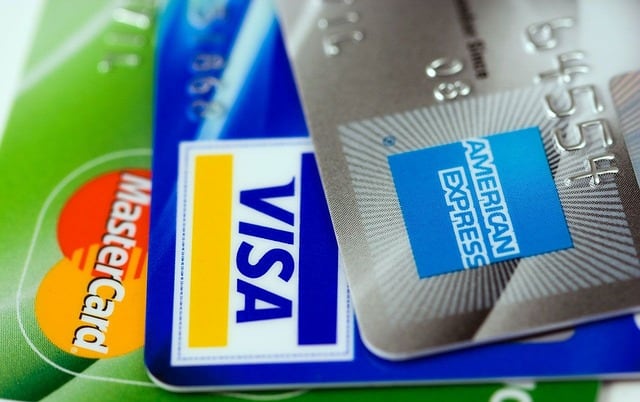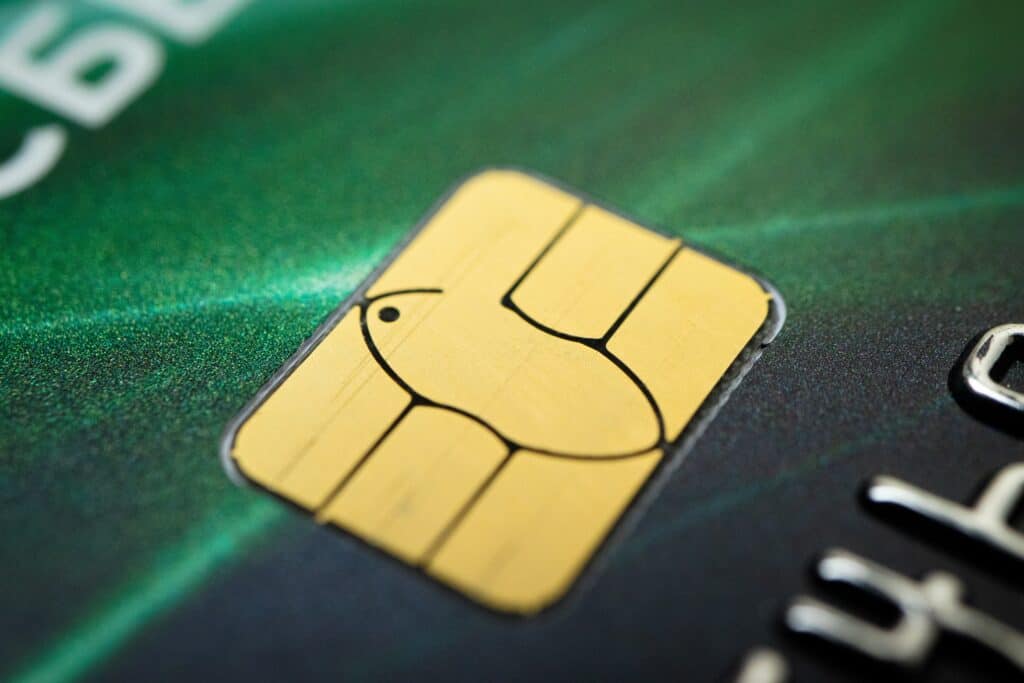Updated on March 6th, 2023
The concept of student credit cards is often hotly debated. Primarily, that’s because there are a variety of credit card pros and cons for students. As a result, that makes it hard to determine whether it’s wise for college students to get one or if they’re better off avoiding this type of debt.
Plus, attending college is expensive, and students may need to find ways to handle costs that aren’t addressed with financial aid. As a result, some might assume that getting the best credit card for college students is a potential necessity.
If your student is worried about the cost of college and concerned that credit cards are the only way to cover their educational expenses, they’re in luck. Scholarships can often handle tuition and fees, and many provide funds for living expenses, too. If you and your student want to learn about the scholarship process, sign up for our free college scholarship webinar! Take a quick trip over to http://thescholarshipsystem.com/freewebinar to reserve a spot today.
Ultimately, whether student credit cards are a good idea or a debt trap depends on several factors. Here’s what students need to know about credit cards for college students, including the pros and cons and some of the best credit cards for college students.
Contents
What Are Student Credit Cards, and How Do They Work?

The eligibility requirements for student credit cards can differ when compared to most other cards. Some require enrollment at a college, and students usually need a source of income, the latter of which doesn’t necessarily vary from other credit card options. However, student credit cards don’t come with the same credit history or credit score requirements, as they’re designed for students who likely don’t have much experience with credit.
Additionally, when compared to traditional options, the maximum borrowing amount is usually lower. Student credit cards may also have fewer perks, such as cashback or rewards points.
It’s critical to note that any of the age-related restrictions outlined in the Credit CARD Act do apply. Even the best credit card for a college student has to follow the rules. As a result, students under the age of 21 either need sufficient independent income or need an appropriately-aged adult to serve as a co-signer.
Benefits of College Student Credit Cards
Building a Credit History
Generally, the biggest benefit of getting a credit card as a student is having a chance to build a credit history and a reasonably strong credit score. The best college student credit cards report to all three credit bureaus to ensure cardholders make the most progress in this area.
By making wise borrowing decisions, keeping any balance low, and ensuring all payments are on time, students can start boosting their credit files. As a result, they may have an easier time securing lower interest rates or other lending products after graduation.
Learning to Manage Debt, Money, and Credit Scores
When students have one of the best college credit cards, they can learn quite a bit about managing debt and money. It’s a clear demonstration of the impact of interest. Plus, it can make learning to budget a necessity and shows the importance of paying bills on time.
Usually, having a credit card also shows students how various decisions about their debt impact their credit scores. They can see their score improve when they’re responsible and the penalties that come with poor choices.
Having an Emergency Source of Funds
Regardless of a person’s age, financial emergencies can occur. By ensuring there’s room on their credit card at all times, students have a source of funds they can tap into if the unexpected happens. As a result, they’re potentially less likely to get in a financial bind, suggesting they’re otherwise using the card responsibly.
Potentially Receiving Rewards or Other Perks
While rewards and perks are less common for cards that target borrowers without credit histories or high incomes, some do have options in that arena. Students may find cashback cards or cards that issue rewards points. Plus, many come with travel-related benefits, low introductory interest rates, and other perks.
Additionally, even if there aren’t rewards programs associated with a card, students may still benefit from smart borrowing behavior. For example, they may qualify for higher credit limits. Plus, they might be able to transition to a more traditional card with additional rewards after graduation.
Drawbacks of Credit Cards for College Students
Mismanaging the Credit Card Comes with Consequences
College students usually have little to no credit history. As a result, a single misstep with a credit card can wreak havoc on their scores and reports. Whether it’s maxing out the card, missing a payment, or anything else that isn’t considered responsible behavior in the eyes of creditors, negative remarks carry far more weight since there’s not as much of a credit history to balance mistakes out.
Dealing with Debt Is Difficult for Students Without Much Income
The majority of college students don’t have much income, so even small debts with monthly payments are potentially hard to manage. As a result, it’s often easier to run short when it’s time to make a payment, particularly if a student underestimates how much they’ve borrowed and what they’ll owe.
In some cases, a lack of familiarity with paying bills and handling debt also increases the odds of mistakes. As with most areas of personal finance, knowledge, and experience can make a difference. Ultimately, since college students are typically newer to managing debt, that can potentially cause them to have a misstep.
Credit Limits Are Lower, and Interest Rates Are Higher
Generally, students are far riskier borrowers in the eyes of credit card companies than older adults. Along with little to no credit history, most students don’t have much independent income. As a result, the term associated with even the best credit card for a college student is typically a lot less favorable.
Often, credit limits for student borrowers are very low. Additionally, interest rates are typically higher. As a result, students can’t use the card often before maxing it out, and carrying a balance of any size can get surprisingly expensive.
Are There Credit Cards for College Students with No Income?
Generally speaking, students need some kind of income to qualify for a credit card. However, the minimum amount is usually incredibly low, so students may be eligible even if they only earn a few thousand dollars during the year.
However, students without a source of income might find other options. If your student is looking for the best credit card for a student without income, they need to choose a lender that will allow a co-signer’s income to stand in place of a student’s own income. While these aren’t as common, some card issuers are open to them.
What Are the Best Credit Cards for Students?
There are many banks with student credit cards. As a result, finding the best credit cards for college students isn’t always easy.
Technically, there isn’t a single best credit card for student borrowers. Every student’s situation is unique, so what works well for one student might not be ideal for another. However, by looking for specific characteristics, it’s easier to determine which cards are likely the best fit.
First, it’s typically wise to avoid student credit cards with annual fees. Annual fees are often surprisingly high, especially in comparison to the credit limit that comes with the best credit card for college borrowers.
Second, focus on lenders that report to all three of the major credit bureaus. That reporting helps students establish their credit history, allowing their scores to improve at every credit bureau. Most of the best credit card offers for college students have that feature, but some lenders may not, so it’s critical to check.
Finally, if your student is interested in studying abroad, the best credit card to get for college student borrowers is one without foreign transaction fees. That ensures they aren’t paying extra if they need to use their card while traveling.
Alternatives to Getting Student Credit Cards
While student credit cards are available, students do have other options for building their credit history. If a parent is willing, they could add their student to an existing credit card as an authorized user. Then, the parent’s good habits boost their student’s credit scores.
However, if the parent struggles to manage their debt, that could actually harm an authorized user’s credit report. As a result, pursuing this option is only wise if the parent is confident in their ability to make smart borrowing decisions.
Students could also explore credit builder loans, which don’t work like a traditional debt. With these, the borrower commits to a specific amount and makes payments as if that’s what they borrowed. However, instead of borrowing the money upfront, the lender saves the monthly payments and returns the total amount once the loan term ends, minus interest and fees.
While payments are ongoing, the credit builder loan lender also reports to all three credit bureaus, just as it happens with a traditional loan. As a result, students can build their credit history without some of the risks that come with credit cards.
If your student is worried about the cost of college and concerned that credit cards are the only way to cover their educational expenses, they’re in luck. Scholarships can often handle tuition and fees, and many provide funds for living expenses, too. If you and your student want to learn about the scholarship process, sign up for our free college scholarship webinar! Take a quick trip over to http://thescholarshipsystem.com/freewebinar to reserve a spot today.







Leave a Reply